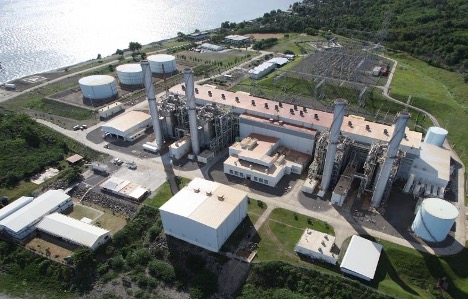PSALM thumbs down San Miguel proposal re Ilijan ownership
- February 25, 2021
- 0

Government-owned Power Sector Assets and Liabilities Management Corporation (PSALM) has rejected the new condition recently imposed by SMC Global Power Holdings (SMCGPH) unit South Premiere Power Corporation (SPPC) for the ownership of the 1,200-megawatt Ilijan Combined-Cycle Power Plant in Batangas City.
SMCGPH, the power generating arm of San Miguel Corporation, wanted PSALM to give up the plant’s control and ownership in its favor by advancing in full its monthly payments ahead of the June 2022 turnover under its Independent Power Producer Administrator (IPPA) agreement. SPPC was designated as the plant’s IPPA in 2010.
During PSALM’s business review with the Department of Finance (DOF) on January 19, PSALM president and CEO Irene Besido-Garcia reported that SPPC’s offer now carries with it a new condition that “entirely differs from the tenor of SPPC’s original offer.”
SPPC publicly announced last year that it was willing to prepay its monthly dues to PSALM “without prejudice” to the pending case it has with the latter. The power firm also echoed this in a March 2020 inquiry of the House committees on public accounts and good government and public accountability into the unpaid Php23.94 billion Generation Payments that PSALM is seeking to collect from SPPC.
Generation Payments refer to the cost of energy based on the specific formula provided for in the IPPA agreement. Monthly Payments, meanwhile, refer to the fixed monthly amounts due to PSALM based on the IPPA’s financial bid for its right to own the power plant at the end of the IPPA Agreement.
Garcia explained that in the March 6, 2020 offer of SPPC to PSALM, the only condition imposed by the power firm on the advance settlement of its Monthly Payments to PSALM was that it would be without prejudice to SPPC’s legal position with respect to the ongoing dispute with PSALM on the Generation Payments due under the IPPA Agreement.
Garcia further said that SPPC’s latest offer, outlined in a letter dated January 11, 2021, unexpectedly contained its new “preposterous” condition. The power firm’s latest condition, she further said, was neither indicated in its original offer letter to PSALM dated March 6, 2020, nor mentioned during the July 2, 2020 meeting between representatives of SPPC and PSALM.
Finance Sec. Carlos Dominguez then reminded PSALM about Pres. Rodrigo Duterte’s directive not to allow any private company to benefit or to secure a franchise until “they settle their full accounts with the government.”
Based on PSALM’s data, the Monthly Payments due from SPPC from January 2021 to June 2022 stood at about Php14 billion. When the offer was made by SPPC early last year, the Monthly Payments amounted to about Php22.68 billion.
PSALM says SPPC still owes it Php23.07 billion in Generation Payments as of the end of last year.
Photo from KEPCO Philippines website.